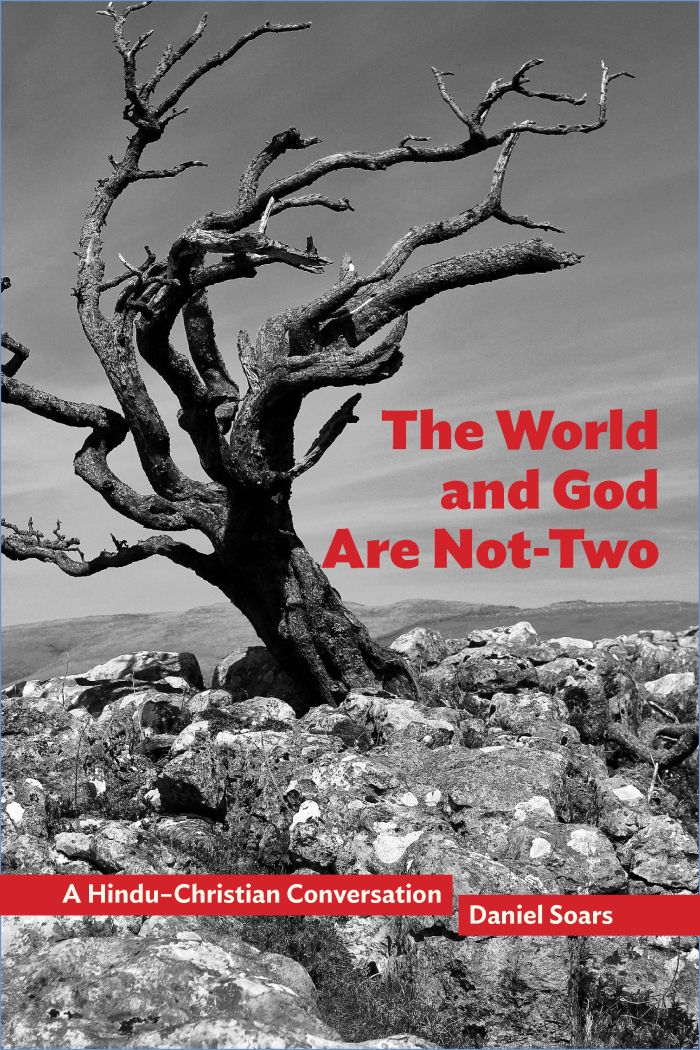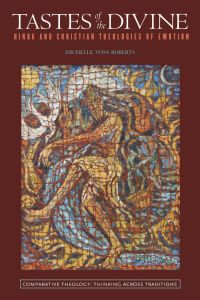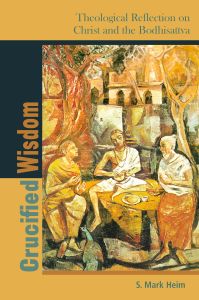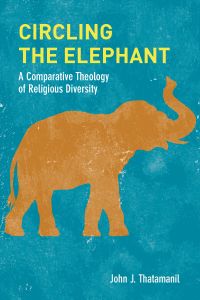The World and God Are Not-Two
A Hindu–Christian Conversation

This book can be opened with

The World and God Are Not-Two is a book about how the God in whom Christians believe ought to be understood. The key conceptual argument that runs throughout is that the distinctive relation between the world and God in Christian theology is best understood as a non-dualistic one. The “two”—“God” and “World” cannot be added up as separate, enumerable realities or contrasted with each other against some common background because God does not belong in any category and creatures are ontologically constituted by their relation to the Creator.
In exploring the unique character of this distinctive relation, Soars turns to Sara Grant’s work on the Hindu tradition of Advaita Vedānta and the metaphysics of creation found in Thomas Aquinas. He develops Grant’s work and that of the earlier Calcutta School by drawing explicit attention to the Neoplatonic themes in Aquinas that provide some of the most fruitful areas for comparative engagement with Vedānta. To the Christian, the fact that the world exists only as dependent on God means that “world” and “God” must be ontologically distinct because God’s existence does not depend on the world. To the Advaitin, this simultaneously means that “World” and “God” cannot be ontologically separate either. The language of non-duality allows us to see that both positions can be held coherently together without entailing any contradiction or disagreement at the level of fundamental ontology. What it means to be “world” does not and cannot exclude what it means to be “God.”
This is the most precise and comprehensive treatment available on non-duality in Hindu-Christian perspective. Soars offers the strongest case that has ever been made for the deep and surprising convergence of the writings of Shankara and Thomas Aquinas on the mystery of creation, which is the mystery of non-duality. The book thus represents a milestone in Hindu-Christian philosophical-theological engagement and will be useful for any person interested in pondering the mystery of their own existence before God.—Bradley Malkovsky, University of Notre Dame, former editor of the Journal of Hindu-Christian Studies
Daniel Soars’s The World and God Are Not-Two is a compelling and carefully rendered comparative theological study of distinction, and of distinctions between creator and creation in Christian and Hindu worldviews. . . This erudite and captivating study is required reading for scholars of Hindu-Christian studies and comparative theologians more generally. Systematic theologians are also sure to benefit from Soars’s invitation to think comparatively.—Horizons: The Journal of the College Theology Society
In directing our attention to the orchards we have unjustly neglected, this book deserves a wide readership.—Modern Theology
The author of this volume is an impressively thorough researcher, leaving no stone unturned in piecing together insights from thinkers both ancient and modern. . . Soars brings to his study an expert command of languages, both classical and contemporary, as well as the capacity for refined and astonishingly rigorous analytic thinking. He is, moreover, a clear and engaging writer who knows when to pause, for the reader’s sake, to summarize challenging ideas and distinctions. The book therefore has the ability to speak to both the trained scholar as well as to those readers not deeply conversant with Hindu and Christian philosophy and theology.—Journal of Hindu-Christian Studies
List of Abbreviations and Conventions | ix
Introduction | 1
1 The Distinctive Relation between Creature and Creator in Christian Theology:
Non-dualism from David Burrell, CSC, to Sara Grant, RSCJ | 17
2 Roman Catholic Encounters with Advaita Vedānta:
Between Transcendental Illusion and Radical Contingency | 40
3 The Relation between the World and God in Śaṁkara and Thomas:
Sara Grant’s Case for a Form of Christian Non-dualism | 69
4 Creation: “Ex Nihilo” or “Ex Deo”? | 97
5 How Real Is the World? Being and Nothingness in Śaṁkara and Thomas | 129
Conclusion | 161
Acknowledgments | 173
Notes | 177
Bibliography | 221
Index | 231




